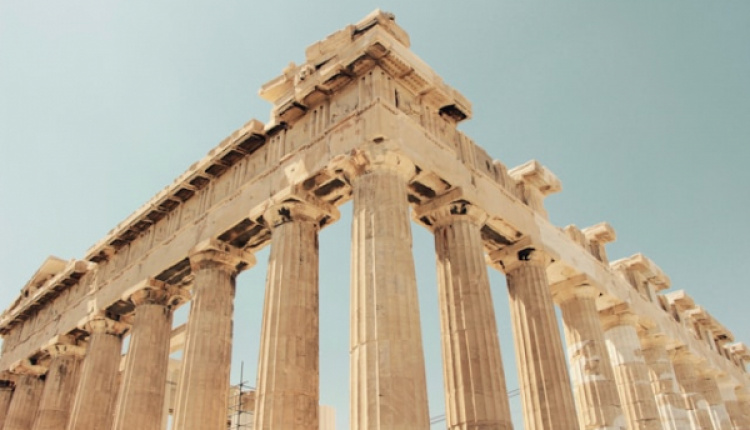18 Fascinating Facts You Might Not Know About Greece
- by XpatAthens
- Monday, 03 June 2024
 Greece is renowned for its rich history, stunning landscapes, and vibrant culture. However, beyond the well-known landmarks and myths, there are many intriguing aspects of Greece that remain lesser-known.
Greece is renowned for its rich history, stunning landscapes, and vibrant culture. However, beyond the well-known landmarks and myths, there are many intriguing aspects of Greece that remain lesser-known. Here are 18 fascinating facts about Greece that might surprise you:
1. The World’s Oldest Computer: The Antikythera mechanism, often considered the world’s first analog computer, was discovered in an ancient shipwreck off the coast of the Greek island Antikythera in 1901. Dating back to around 150-100 BC, it was used to predict astronomical positions and eclipses for calendrical and astrological purposes.
2. Over 6,000 Islands: Greece boasts over 6,000 islands and islets scattered in the Aegean and Ionian Seas, but only around 227 of them are inhabited.
3. The Birthplace of Democracy: While this is well-known, what’s often overlooked is that the democratic system established in Athens around the 5th century BC involved a complex system of direct democracy where citizens could participate directly in decision-making.
4. World’s Longest National Anthem: Greece’s national anthem, "Hymn to Liberty," has 158 stanzas. Written by Dionysios Solomos in 1823, it is the longest national anthem in the world.
5. Ancient Greek Firefighters: The city of Alexandria, founded by Alexander the Great, had an ancient form of firefighters. They were organized to protect the vast library and other important structures from fire.
6. Musical Heritage: Rebetiko, often referred to as the Greek blues, emerged in the early 20th century among the urban working-class and has roots in the refugee populations that came to Greece after the Greco-Turkish War.
7. Olympic Flame Tradition: The tradition of lighting the Olympic flame originated in Ancient Greece. The flame was lit to signify the start of the ancient Olympic Games held in Olympia.
8. First actor: Thespis of Icaria, a 6th-century BC poet, is often considered the first actor in Greek drama. His name gave rise to the term "thespian," meaning actor.
9. The Greek Language: Modern Greek is derived from ancient Greek, and it is one of the oldest recorded living languages still in use today, with written records spanning over 34 centuries.
10. Ancient Innovations: The ancient Greeks were pioneers in many fields, including the development of the crane, the water mill, and the alarm clock, showcasing their ingenuity.
11. Seismic Activity: Greece is one of the most seismically active countries in the world. The country experiences thousands of small earthquakes each year, due to its location along multiple tectonic plate boundaries.
12. Marathon Origins: The marathon race commemorates the run of the soldier Pheidippides, who ran from the battlefield of Marathon to Athens to announce the Greek victory over Persia in 490 BC, covering approximately 26 miles.
13. Rich Flora and Fauna: Greece is home to more than 6,000 species of plants and a wide range of wildlife, many of which are endemic to the region, including the Cretan wild goat and the monk seal.
14. Ancient Theater Acoustics: The ancient theater of Epidaurus, built in the 4th century BC, is renowned for its exceptional acoustics, allowing the audience to hear performances with incredible clarity, even from the back rows.
15. Coffee Culture: Greece is the fifth highest country in the world in coffee consumption. It has its own unique coffee patents, such as freddo espresso, freddo cappuccino, frappe, and, of course, greek coffee which you can't find anywhere else in the world.
16. Ancient Gymnasiums: The word "gymnasium" comes from the Greek word "gymnasion," which means "school for naked exercise." In ancient Greece, gymnasiums were centers not only for physical training but also for intellectual education and social interaction.
17. First Historian: Herodotus, known as the "Father of History," was a Greek historian who lived in the 5th century BC. He was the first to systematically collect materials and critically arrange them into a historical narrative.
18. Pioneers in Medicine: Hippocrates, often called the "Father of Medicine," was a Greek physician of the Classical period. He established the Hippocratic School of Medicine and is credited with laying the foundations of modern medicine. The Hippocratic Oath, taken by physicians to this day, is named after him.
16. Ancient Gymnasiums: The word "gymnasium" comes from the Greek word "gymnasion," which means "school for naked exercise." In ancient Greece, gymnasiums were centers not only for physical training but also for intellectual education and social interaction.
17. First Historian: Herodotus, known as the "Father of History," was a Greek historian who lived in the 5th century BC. He was the first to systematically collect materials and critically arrange them into a historical narrative.
18. Pioneers in Medicine: Hippocrates, often called the "Father of Medicine," was a Greek physician of the Classical period. He established the Hippocratic School of Medicine and is credited with laying the foundations of modern medicine. The Hippocratic Oath, taken by physicians to this day, is named after him.

